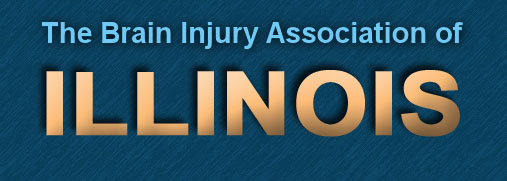
|
Home Contact About What is Brain Injury Calendar Membership How we can help How you can help Links Support Advocacy Research Prevention Corporate Sponsors The Market |
|


|
M e n u Brain
Injury Characteristics Acquired brain injury is an injury to the brain that is not hereditary, present at birth, or degenerative. Causes include traumatic brain injury; anoxic/hypoxic injury (e.g. heart attack, carbon monoxide poisoning), intracranial surgery, seizure disorders and toxic exposure (e.g. substance abuse, ingestion or inhalation of volatile agents). Traumatic brain injury with or without skull fracture is an insult to the brain caused by an external physical force that may produce a diminished or altered state of consciousness. Brain injury may result in an impairment of cognitive abilities (e.g. perception, memory, or judgment), physical, behavioral or emotional functioning. A brain injury may be either temporary or permanent and may cause either partial or total functional impairment. Mild brain injury, also known as concussion is an injury that may leave the person feeling dazed or cause a brief loss of consciousness. Mild brain injury can lead to "post-concussion syndrome" that can include headaches, dizziness, mild mental slowing, and fatigue. For some people, symptoms may last only a few months; for others, problems may persist indefinitely. Brain Injury Characteristics: Just as each individuals is unique, so is each brain injury. Physical disabilities, impaired learning and personality changes are common. Frequently reported problems include:
Coma is defined as a prolonged state of unconsciousness. The person does not respond to external stimuli. There is no speech, the eyes are closed, and the person cannot obey commands. What Causes Coma: More than 50% of the coma cases are due to trauma to the head or circulatory disruptions the brain. How Long Does Coma Last: Coma can last from hours to days, depending on the severity of the brain damage. It is possible for a person to remain in a comatose state for months or even years. Can Medication Help: Presently, there are no known medications that will shorten the length of coma. There are some medications that will be used to deepen the level of unconsciousness while others will be used to temporarily paralyze the body. The medicines given are for well being of the comatose person. Can They Move, Hear, Or Feel Pain: A person in coma cannot obey commands; however, they may move in response to touch, pain, or their own movements. A person in coma may respond to pain by moving or groaning, but usually they have no recall of pain. Some people in coma may appear to be able to hear and understand by squeezing a hand, sucking, responding to touch, or calming down when a familiar voice is heard. Since most persons in coma cannot recall the period of unconsciousness, it is not possible to determine if the comatose person could actually hear and understand. A good rule to follow is, to talk to, and about the person as if they could hear and understand you. Definitions and Causes The Brain Injury Association of America defines an acquired brain injury as an injury to the brain that has occurred after birth and “which is not hereditary, congenital or degenerative.” A traumatic brain injury (TBI) is an acquired brain injury that is “caused by an external physical force that may produce a diminished or altered state of consciousness.” The most common causes of TBI are vehicle crashes, falls, sports injuries, and violence. Other acquired brain injuries can be caused by medical events such as anoxia (loss of oxygen to the brain), aneurysms, infections to the brain, tumors, or stroke. Some statistics about brain injury According to the Centers for Disease Control and Prevention (2001):
In the time it took you to
read these facts, at least two more Americans sustained a traumatic
brain injury. For additional national statistics, go to the
CDC website: Results of a brain injury Whatever the cause, a brain injury can, according to the Brain Injury Association of America, result in “an impairment of cognitive abilities or physical functioning. It can also result in the disturbance of behavioral or emotional functioning.” Cognitive consequences can include memory loss, slowed ability to process information, trouble concentrating, organizational problems, poor judgment, difficulty initiating activities, among others. Physical consequences can include seizures, muscle spasticity, fatigue, headaches, balance problems, among others. Emotional/behavioral consequences can include depression, mood swings, anxiety, impulsivity, agitation, among others. Brain injury affects not only the individual, but the family, close friends, coworkers and other social networks of the individual as well. Roles and relationships change; the financial ramifications may be extensive. The Brain Injury Association of America National Office has an extensive website, with more information about the causes of brain injury, statistics, consequences, numerous resources and links. Visit the Brain Injury Association of America on the web at: http://www.biausa.org Seven things families need to remember
Fact Sheet Section...
Fact Sheets
CDC's "Facts About Traumatic Brain Injury"
|
home |
contact |
about | advocacy |
calendar | membership
how we can help | how you
can help |
prevention
support | what is brain injury
| research
Brain Injury Association of Illinois
P.O. Box 70
Palos Heights, IL 60463
Phones: 312-726-5699 or
800-699-6443 Fax:312-630-4011
